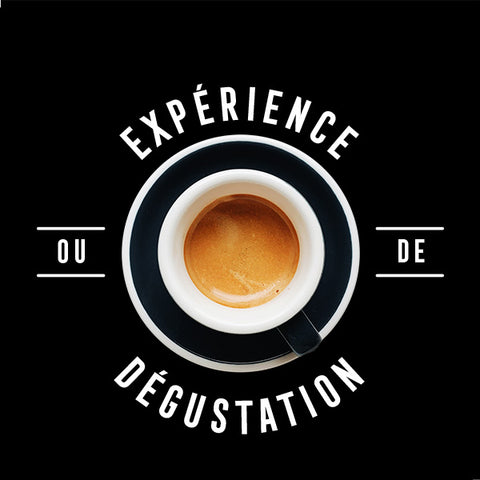Today I'm talking about gourmet coffee to respond to a reflection that many restaurateurs and roasters have regarding coffee. Because if I have long been merciless for sellers of dishwater, my position as a coffee supplier has evolved over the years, thanks to working with restaurateurs who are truly motivated to offer quality coffee. And I have long thought that the old method of customer loyalty, so dear to business coffee: "the supplier lends me the coffee maker so I have to buy him his bad coffee", was the main cause of the absence of coffee from quality in the vast majority of restaurants around the world. And I said “the world”. Because if this way of doing business is largely responsible for the poor quality of coffee in restaurants, I discovered, as my restaurant clientele grew, that there was something more subtle behind this situation. And that even if my customers bought their coffee maker, sometimes by investing large amounts, the coffee supply was like a thorn in the side of their operation. So, how do you integrate specialty coffee into the menu? Who is responsible for making the coffees? And now, in the hubbub of an evening with 100 seats, offering a cappuccino for dessert is a real act of masochism for the service employees. Because very few establishments have the means to pay for a barista behind the bar, to have a bartender trained in the art of espresso or even a waitress capable of operating the machine. So the very process of running a restaurant makes it difficult to add specialty coffee. 
On this side, we are seeing more and more establishments combining coffee with bar service, with a menu of alcoholic coffees. We can also see in France the profession of barista and bartender which is combined for several professionals. With the bar, it's quite simple to set up: good equipment, good training for everyone, the definition of beverage standards and you can get started quite easily.
But for those who would like to take the plunge, and who have a small establishment without bar service, I suggest gourmet coffee. Having appeared in Paris restaurants around 2005 as a quick option for dessert during lunch , the gourmet coffee will consist of an espresso, accompanied by different sweets such as chouquette, mini chocolate fondants, small crème brûlée, macaron, scoop of sorbet, salted caramel candy, etc. Small portions, colorful, and with different textures. Easy to make, simple to prepare, quick to serve. I suggest espresso to start and if you want to get started, add milk-based drinks (cappuccino, latte, macchiato, etc.). I love this type of dessert which allows you to add an option between the simple filter coffee and the large portion of dessert which will give us nightmares all night long. Mind you, you could swap espresso for tea… But it's less sexy than espresso. For the restaurateur, it is a way of introducing espresso, while seeking additional sales at the end of the meal with a dessert disguised as “small, harmless sweet things to eat”. You have to pay your bills ;-) So I'll let you search the web to find many gourmet coffee suggestions.
 I would add that if you are lucky enough to know your roaster, you can work with them to add value to your gourmet coffee offering. For example, using coffees with a specific character to pair with your mini pastry offering. A coffee with a strong, textured body can go wonderfully with a chocolate theme, in mousse or fondant, enhanced with a mini crème brûlée and a lemon macaron. I had fantasized, a few years ago, about working with restaurateurs in this type of relationship. And now, with the evolution of consumer tastes, restaurateurs are discovering coffee and treating it in the same way as the rest of their menu. In this case, realizing this fantasy with a few clients is very stimulating and pushes me to explore even further the possibilities that coffee, this Arabian wine, offers in coffee-dessert pairings.
I would add that if you are lucky enough to know your roaster, you can work with them to add value to your gourmet coffee offering. For example, using coffees with a specific character to pair with your mini pastry offering. A coffee with a strong, textured body can go wonderfully with a chocolate theme, in mousse or fondant, enhanced with a mini crème brûlée and a lemon macaron. I had fantasized, a few years ago, about working with restaurateurs in this type of relationship. And now, with the evolution of consumer tastes, restaurateurs are discovering coffee and treating it in the same way as the rest of their menu. In this case, realizing this fantasy with a few clients is very stimulating and pushes me to explore even further the possibilities that coffee, this Arabian wine, offers in coffee-dessert pairings.
Danny Marquis



Comments (1)
Sinon, le café en Chemex ou en Cafetière à piston (Bodum, “French Press”)! Pour le décorum, c’est top! N’oublions pas l’effet de récence, un principe en psychologie : les gens se rappellent plus facilement la fin d’un événement : au restaurant, le café et le dessetr! ;) Encore une fois, un super article!